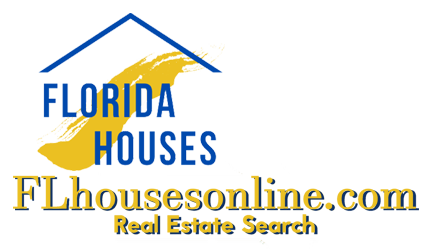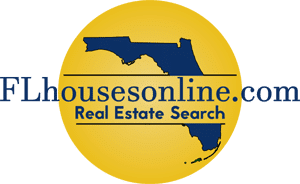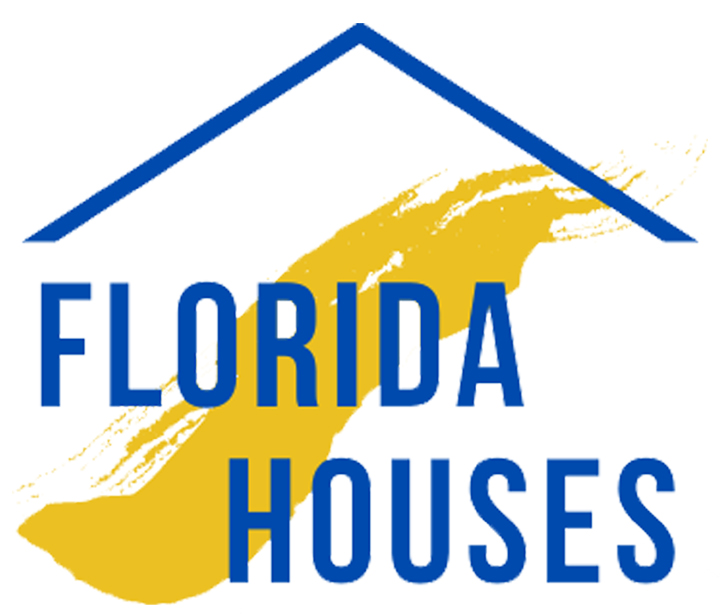New Listings Palm Beach Homes For Sale
Understanding the Different Types of Home Mortgages
Buying a home is a major milestone in anyone’s life. It’s a big decision that requires careful planning and consideration. One of the most important aspects of buying a home is securing a mortgage. A mortgage is a loan that is used to finance the purchase of a home. It is a long-term commitment that can have a significant impact on your financial stability. With so many different types of mortgages available, it can be overwhelming to understand which one is the best fit for you. In this article, we will discuss the different types of home mortgages and help you understand your options when buying real estate.
The most common type of mortgage is a conventional mortgage. This is a loan that is not insured or guaranteed by the government. It is typically offered by banks, credit unions, and other financial institutions. With a conventional mortgage, the borrower is required to make a down payment of at least 20% of the purchase price of the home. This down payment helps to reduce the lender’s risk and can also help the borrower avoid paying private mortgage insurance (PMI). PMI is an additional cost that is added to the monthly mortgage payment and is required for borrowers who make a down payment of less than 20%.
Another type of mortgage is an FHA loan. This is a loan that is insured by the Federal Housing Administration (FHA). It is designed for first-time homebuyers or those with lower credit scores. With an FHA loan, the borrower is required to make a down payment of at least 3.5% of the purchase price of the home. This lower down payment requirement makes it easier for people to become homeowners. However, borrowers are still required to pay PMI with an FHA loan.
For those who are looking to buy a home in a rural area, a USDA loan may be a good option. This is a loan that is guaranteed by the U.S. Department of Agriculture (USDA). It is designed to help low to moderate-income families purchase homes in rural areas. With a USDA loan, the borrower is not required to make a down payment, and PMI is not required. However, there are income and location restrictions for this type of loan.
If you are a veteran or currently serving in the military, you may be eligible for a VA loan. This is a loan that is guaranteed by the U.S. Department of Veterans Affairs (VA). It is designed to help veterans and their families purchase homes with no down payment and no PMI. VA loans also offer competitive interest rates and flexible credit requirements.
In addition to these traditional mortgages, there are also specialized mortgages available for specific situations. For example, a jumbo loan is a type of mortgage that is used for homes that exceed the conforming loan limits set by Fannie Mae and Freddie Mac. These loans typically have higher interest rates and stricter credit requirements.
Another type of mortgage is an adjustable-rate mortgage (ARM). This is a loan that has an interest rate that can change over time. The initial interest rate is typically lower than a fixed-rate mortgage, but it can increase or decrease depending on market conditions. This type of mortgage is riskier because the borrower’s monthly payments can change, making it harder to budget and plan for the future.
It’s important to carefully consider your options when choosing a mortgage. Take the time to research and compare different types of mortgages to find the best fit for your financial situation. It’s also a good idea to consult with a mortgage lender or financial advisor to get personalized advice and guidance.
In conclusion, understanding the different types of home mortgages is crucial when buying real estate. From conventional loans to specialized mortgages, there are various options available to suit different needs and financial situations. Take the time to research and compare your options to find the best fit for you. Remember, buying a home is a big decision, so make sure to carefully consider all aspects before making a commitment.
Pros and Cons of Fixed-Rate vs. Adjustable-Rate Mortgages
Buying a home is a major milestone for many people. It’s a big decision that requires careful consideration, especially when it comes to financing. One of the most important aspects of buying a home is choosing the right mortgage. There are many options available, but two of the most common are fixed-rate and adjustable-rate mortgages. In this article, we’ll explore the pros and cons of each to help you make an informed decision.
Fixed-rate mortgages are the most traditional type of home loan. As the name suggests, the interest rate remains fixed for the entire term of the loan, typically 15 or 30 years. This means that your monthly mortgage payment will stay the same, making it easier to budget and plan for the future. This stability is one of the main advantages of a fixed-rate mortgage.
Another advantage of a fixed-rate mortgage is that it offers protection against rising interest rates. If interest rates go up, your mortgage rate will not be affected. This can save you a significant amount of money over the life of the loan. Additionally, fixed-rate mortgages are generally easier to understand and less risky than adjustable-rate mortgages.
However, there are also some downsides to fixed-rate mortgages. The main disadvantage is that the interest rate is typically higher than that of an adjustable-rate mortgage. This means that you may end up paying more in interest over the life of the loan. Additionally, if interest rates decrease, you will not be able to take advantage of the lower rates without refinancing your mortgage.
On the other hand, adjustable-rate mortgages (ARMs) have interest rates that can fluctuate over the life of the loan. The initial interest rate is typically lower than that of a fixed-rate mortgage, making it an attractive option for those looking to save money in the short term. ARMs also offer the potential for lower monthly payments, which can be beneficial for those on a tight budget.
One of the main advantages of an ARM is that it allows you to take advantage of falling interest rates. If interest rates decrease, your mortgage rate will also decrease, resulting in lower monthly payments. This can save you a significant amount of money over the life of the loan. Additionally, ARMs often have a cap on how much the interest rate can increase, providing some protection against drastic rate hikes.
However, there are also some drawbacks to ARMs. The biggest risk is that the interest rate can increase, resulting in higher monthly payments. This can make budgeting and planning for the future more difficult. Additionally, ARMs can be more complex and harder to understand than fixed-rate mortgages, making them a riskier option for some borrowers.
When deciding between a fixed-rate and adjustable-rate mortgage, it’s important to consider your personal financial situation and long-term goals. If you plan on staying in your home for a long time and want the stability of a fixed monthly payment, a fixed-rate mortgage may be the better option for you. However, if you plan on selling your home in a few years or are comfortable with the potential for fluctuating interest rates, an ARM may be a better fit.
In conclusion, both fixed-rate and adjustable-rate mortgages have their own set of pros and cons. It’s important to carefully weigh these factors and consider your personal financial situation before making a decision. Ultimately, the right mortgage for you will depend on your individual needs and goals. With the right information and guidance, you can make an informed decision and find the perfect mortgage for your new home.
FHA Loans: What You Need to Know
Buying a home is a major milestone for many people. It’s a big decision that requires careful planning and consideration. One of the most important aspects of buying a home is securing a mortgage. There are various types of mortgages available, and one option that is popular among first-time homebuyers is an FHA loan. In this article, we will discuss what FHA loans are, how they work, and the benefits and drawbacks of choosing this type of mortgage.
FHA stands for Federal Housing Administration, which is a government agency that is part of the Department of Housing and Urban Development (HUD). The FHA was created in 1934 to help stimulate the housing market during the Great Depression. Its main purpose is to provide mortgage insurance to lenders, which allows them to offer loans to borrowers who may not qualify for conventional mortgages.
One of the main advantages of an FHA loan is that it requires a lower down payment compared to conventional loans. While conventional loans typically require a down payment of at least 20%, an FHA loan only requires a down payment of 3.5%. This makes it a more accessible option for those who may not have a large amount of savings for a down payment.
Another benefit of an FHA loan is that it has more lenient credit requirements. While conventional loans may require a credit score of 620 or higher, FHA loans may be available to borrowers with credit scores as low as 500. However, keep in mind that a lower credit score may result in a higher interest rate.
FHA loans also have limits on the amount that can be borrowed. These limits vary by location and are based on the median home prices in the area. In most areas, the limit for a single-family home is $331,760, but in high-cost areas, it can go up to $765,600. It’s important to check the loan limits in your area before applying for an FHA loan.
One of the drawbacks of an FHA loan is that it requires mortgage insurance. This insurance protects the lender in case the borrower defaults on the loan. The upfront mortgage insurance premium is 1.75% of the loan amount and can be rolled into the loan. Additionally, there is an annual mortgage insurance premium that is divided into monthly payments and added to the borrower’s mortgage payment. This can increase the overall cost of the loan.
Another thing to keep in mind is that FHA loans have stricter appraisal requirements. The property must meet certain standards and be in good condition for the loan to be approved. This means that if the home you are interested in buying needs major repairs, it may not qualify for an FHA loan.
It’s also important to note that FHA loans are only available for primary residences. This means that you cannot use an FHA loan to purchase a second home or investment property. You must also be able to prove that you have a stable income and can afford the monthly mortgage payments.
In conclusion, FHA loans can be a great option for first-time homebuyers or those with lower credit scores. They offer a lower down payment and more lenient credit requirements, making homeownership more accessible. However, it’s important to consider the drawbacks, such as mortgage insurance and stricter appraisal requirements, before deciding if an FHA loan is the right choice for you. As always, it’s best to consult with a mortgage lender to discuss your options and determine the best course of action for your specific situation.
VA Loans: Benefits for Military Members and Veterans
Buying a home is a major milestone for many people. It’s a symbol of stability, security, and the American dream. However, the process of purchasing a home can be overwhelming, especially when it comes to financing. There are various options available for home mortgages, and it’s important to understand them in order to make the best decision for your financial situation. For military members and veterans, one option that stands out is the VA loan.
VA loans are home mortgages that are guaranteed by the Department of Veterans Affairs. They were created in 1944 as part of the GI Bill of Rights, with the purpose of helping veterans and their families achieve the dream of homeownership. These loans are available to active duty service members, veterans, and eligible surviving spouses.
One of the biggest benefits of a VA loan is that it allows for 100% financing. This means that no down payment is required, which can be a huge relief for those who may not have enough savings for a traditional mortgage. This also means that there is no need for private mortgage insurance (PMI), which can save borrowers hundreds of dollars each month.
In addition to the no down payment requirement, VA loans also have competitive interest rates. This is because the loans are backed by the government, making them less risky for lenders. This can result in significant savings over the life of the loan. It’s important to note that the interest rates for VA loans are not set by the government, so it’s still important to shop around and compare rates from different lenders.
Another benefit of VA loans is that they have more lenient credit requirements compared to traditional mortgages. While a good credit score is always important, VA loans may be more forgiving for those with less-than-perfect credit. This can be a huge advantage for military members and veterans who may have had financial challenges during their service.
VA loans also have no prepayment penalties. This means that borrowers can pay off their loan early without incurring any fees. This can be a great option for those who may receive a lump sum of money, such as a bonus or inheritance, and want to use it to pay off their mortgage.
For military members and veterans who may be stationed in different locations, VA loans also offer the option of assumability. This means that the loan can be transferred to another eligible borrower, which can be beneficial if the borrower needs to move and wants to sell their home. This can also be a great selling point for potential buyers, as they may be able to assume the loan with its current interest rate, rather than having to secure a new mortgage.
It’s important to note that while VA loans offer many benefits, they also have some limitations. The loan amount is capped at a certain limit, which varies depending on the location of the property. Borrowers may also be required to pay a funding fee, which is a one-time fee that helps offset the cost of the loan for the government. However, this fee can be rolled into the loan amount, so it doesn’t have to be paid upfront.
In conclusion, VA loans are a great option for military members and veterans who are looking to purchase a home. They offer many benefits, such as no down payment, competitive interest rates, and more lenient credit requirements. However, it’s important to carefully consider all options and compare rates from different lenders to ensure that a VA loan is the best choice for your individual situation. With the help of a knowledgeable lender, you can navigate the home buying process and achieve the dream of homeownership.
Jumbo Mortgages: What They Are and Who They’re For
When it comes to buying a home, most people are familiar with the concept of a mortgage. A mortgage is a loan that is used to finance the purchase of a property. However, there is a type of mortgage that is not as well-known but can be a great option for certain homebuyers – the jumbo mortgage.
So, what exactly is a jumbo mortgage? Simply put, it is a mortgage that exceeds the conforming loan limits set by the Federal Housing Finance Agency (FHFA). These limits vary by location but are typically around $548,250 for a single-family home. Any loan amount above this limit is considered a jumbo mortgage.
Jumbo mortgages are designed for high-end properties and are typically used by borrowers who need to finance a home that is above the conforming loan limit. These homes are often located in expensive areas and can include luxury properties, vacation homes, and investment properties.
One of the main differences between a jumbo mortgage and a traditional mortgage is the loan amount. Jumbo mortgages can range from $548,251 to several million dollars, depending on the property and the borrower’s financial situation. This means that the down payment and monthly payments will also be higher compared to a traditional mortgage.
So, who are jumbo mortgages for? They are primarily for high-income earners and those with a strong credit history. Lenders typically require a credit score of 700 or higher for jumbo mortgages, and borrowers should have a debt-to-income ratio of 43% or less. This means that the borrower’s monthly debt payments, including the mortgage, should not exceed 43% of their monthly income.
Jumbo mortgages are also a good option for self-employed individuals or business owners who may have a fluctuating income. These borrowers may not meet the strict income requirements of a traditional mortgage, but with a jumbo mortgage, they can use their assets and investments as proof of their financial stability.
Another advantage of a jumbo mortgage is that it allows borrowers to finance a higher-priced home without having to take out multiple loans. This can save time and money in the long run, as borrowers will only have to go through the mortgage process once and will only have one monthly payment to manage.
However, there are also some downsides to consider when it comes to jumbo mortgages. As mentioned earlier, the down payment and monthly payments will be higher compared to a traditional mortgage. This can make it more challenging for some borrowers to qualify for a jumbo mortgage.
Additionally, jumbo mortgages often come with higher interest rates compared to traditional mortgages. This is because they are considered riskier for lenders, as they are financing a larger loan amount. Borrowers should carefully consider their financial situation and whether they can afford the higher payments before deciding on a jumbo mortgage.
It’s also essential to note that jumbo mortgages are not backed by government-sponsored entities like Fannie Mae or Freddie Mac. This means that lenders may have stricter requirements and may require a larger down payment or a higher credit score.
In conclusion, jumbo mortgages are a great option for high-income earners and those looking to finance a high-priced property. They offer the convenience of financing a larger loan amount without having to take out multiple loans. However, they also come with higher down payments, monthly payments, and interest rates, so borrowers should carefully consider their financial situation before deciding on a jumbo mortgage. It’s always best to consult with a mortgage lender to determine the best option for your specific needs and financial situation.
Alternative Options for Financing a Home Purchase
Buying a home is a major milestone in many people’s lives. It’s a big decision that requires careful consideration and planning. One of the most important aspects of buying a home is figuring out how to finance it. While traditional mortgages are the most common way to finance a home purchase, there are alternative options available that may better suit your needs. In this article, we’ll explore some of these alternative options for financing a home purchase.
One alternative option for financing a home purchase is a rent-to-own agreement. This type of agreement allows you to rent a home with the option to buy it at a later date. This can be a good option for those who may not have enough money for a down payment or who have a lower credit score. With a rent-to-own agreement, a portion of your monthly rent goes towards building equity in the home. This can help you save up for a down payment while also giving you time to improve your credit score.
Another alternative option is seller financing. This is when the seller of the home acts as the lender and provides financing for the buyer. This can be a good option for those who may not qualify for a traditional mortgage or who want to avoid the strict requirements and fees associated with traditional mortgages. With seller financing, the buyer and seller negotiate the terms of the loan, including the interest rate and repayment schedule. This can be a more flexible option for both parties involved.
If you’re a first-time homebuyer, you may also want to consider a government-backed loan. These loans are insured by the government and often have lower down payment requirements and more flexible credit score requirements. The most well-known government-backed loan is the Federal Housing Administration (FHA) loan. This type of loan is popular among first-time homebuyers because it only requires a 3.5% down payment and allows for lower credit scores. Other government-backed loans include the Department of Veterans Affairs (VA) loan for veterans and the United States Department of Agriculture (USDA) loan for rural homebuyers.
For those who are self-employed or have non-traditional income sources, a stated income loan may be a good option. With this type of loan, the lender does not verify your income through traditional means, such as tax returns or pay stubs. Instead, you provide a statement of your income and the lender uses that to determine your eligibility for the loan. This can be a good option for those who have a fluctuating income or who have difficulty providing traditional income documentation.
Lastly, if you’re looking to buy a fixer-upper, a renovation loan may be the best option for you. These loans allow you to finance the cost of the home and the cost of renovations into one loan. This can be a good option for those who want to customize their home or increase its value. The most common type of renovation loan is the FHA 203(k) loan, which allows for both minor and major renovations.
In conclusion, while traditional mortgages are the most common way to finance a home purchase, there are alternative options available that may better suit your needs. From rent-to-own agreements to renovation loans, it’s important to explore all of your options and choose the one that best fits your financial situation and goals. Remember to do your research and consult with a financial advisor or lender to determine the best option for you. With the right financing, you can make your dream of homeownership a reality.
click above for more new listings
Palm Beach Real Estate | Florida Houses
Palm Beach Homes For Sale
If you would like more information on any Palm Beach county Homes, send us a message below. We know Palm Beach homes & real estate and all the South Florida real estate market. One of our professional south Florida real estate agents will reach contract you promptly.





